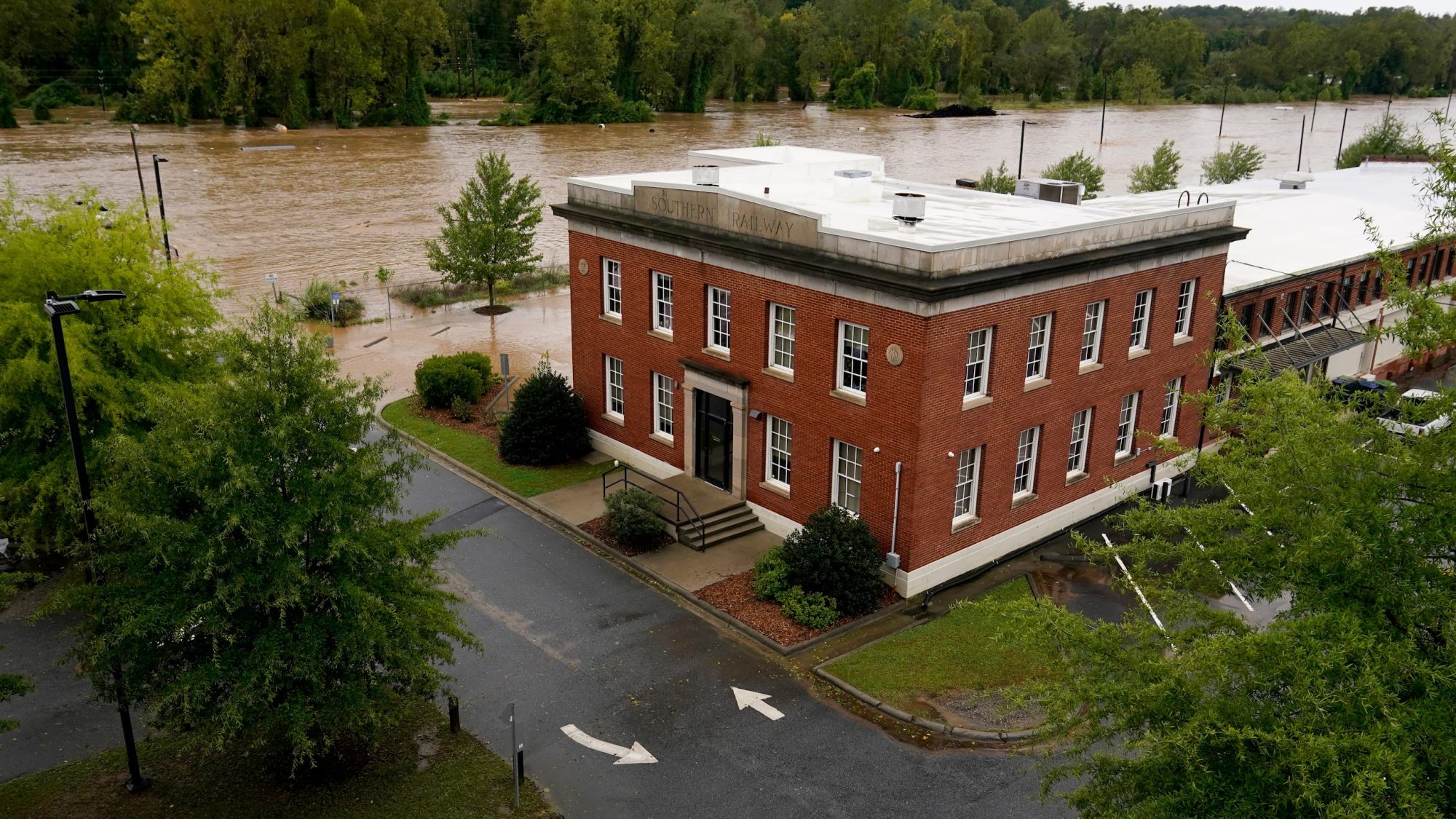
An American flag flies over the destroyed city hall in the aftermath of Hurricane Helene, in Horseshoe Beach, Florida, on Saturday.Stephen Smith/AP
Hurricane Helene wreaked havoc across the Southeast over the past several days, leaving more than 60 people dead and providing a chilling example of how climate change is worsening storms.
Since the hurricane made landfall in northern Florida on Thursday, it killed at least 64 people, including 1-month-old twins and their 27-year-old mother in Georgia, and a couple in their 70s and a 6-year-old relative who drowned in North Carolina, the Associated Press reported Sunday. North Carolina was particularly hard hit, with western parts of the state receiving more than two feet of rainfall, leading to the closure of about 300 roads, according to federal authorities.

The storm also brought more than a foot of rain to parts of Florida, Georgia, and South Carolina, as well as massive power outages, including, at one point, in 40 percent of South Carolina, the AP reports. As of Sunday afternoon, there were more than 2.2 million power outages across the Southeast, with more than 870,000 in South Carolina and more than 600,000 in Georgia, according to PowerOutage.us.

In a statement Saturday, President Joe Biden said he was “deeply saddened by the loss of life and devastation” that Helene wrought, adding, “As we turn toward recovery efforts, we will make certain that no resource is spared to ensure that families, businesses, schools, hospitals, and entire communities can quickly begin their road to rebuilding.”
Before the storm made landfall, Biden approved emergency aid requests from the governors of Alabama, Florida, Georgia, North Carolina, and South Carolina, and sent 1,500 federal personnel to the region, according to information the White House released Friday. On Sunday, the Federal Emergency Management Agency announced that Biden had approved major disaster declarations for North Carolina and Florida, unlocking more aid for both states.

“Doug and I are thinking of those who tragically lost their lives and we are keeping all those who loved them in our prayers during the difficult days ahead,” Vice President Kamala Harris said in a statement Saturday, adding that she had been briefed on the situation by FEMA officials and would continue receiving regular updates.
On CBS’s Face the Nation on Sunday, FEMA Administrator Deanne Criswell blamed climate change for the storm’s rapid intensification—and warned that the devastation was a harbinger of what’s to come in our increasingly warming planet. “In the past, when we would look at damage from hurricanes, it was primarily wind damage, with some water damage, but now we’re seeing so much more water damage, and I think that is a result of the warm waters, which is a result of climate change,” Criswell said.

